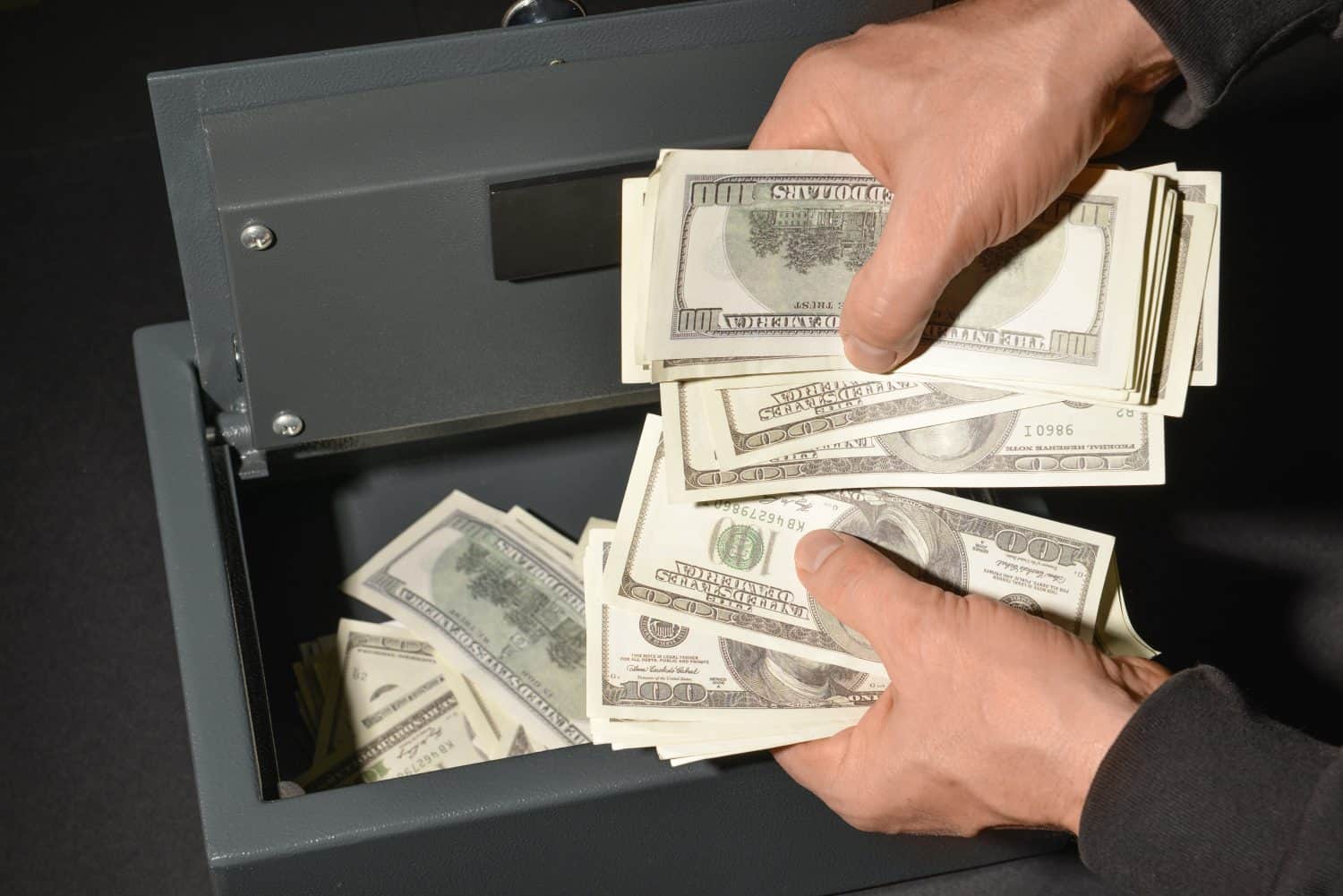
This post may contain links from our sponsors and affiliates, and Flywheel Publishing may receive
compensation for actions taken through them.
compensation for actions taken through them.
With 2025 just around the corner, it’s a good idea to check in on your financial health.
Here are five ways to make sure your finances are as healthy as they be should.

Key Points About This Article
- With 2025 just around the corner, it’s a good idea to check in on your financial health.
- It’s essential that you have emergency funds set aside just in case. Some analysts say you should have at least three to six months’ worth of living expenses set aside with it.
- If you can pay down or eliminate major debt, the better off you’ll be.
- Also: Take this quiz to see if you’re on track to retire (Sponsored)
First, check in on your budget.
If you have one, great. If not, and you find yourself struggling financially, consider putting one together. With it, compare your monthly expenditures with what you expect to spend. Did you come in below or over expectations? If you went over, you may want to consider reducing your spending or attempting to increase your income in 2025.
As noted by Morgan Stanley, “A budget is the foundation of your financial strategy. While everyone’s expenses are different, the 50-30-20 Rule can serve as a helpful framework. It suggests allocating 50 percent of your budget to needs, 30 percent to wants and 20 percent to savings and investments.”
Second, add to your emergency fund.
Many things in life are unpredictable, especially medical issues.
So, it’s essential that you have emergency funds set aside just in case. Some analysts say you should have at least three to six months’ worth of living expenses set aside with it.
And, if you don’t have one set up, start small with an emergency savings goal of at least $1,000. Sure, it’s small but it’s a safety net, and it’s a start. In fact, if you can put away about $85 a month, you’ll reach that goal and have some wiggle room.
However, be sure to store this in a separate “don’t touch” account, automatically depositing money every time you’re paid. Plus, if you ever receive another source of income, such as a bonus or a gift, put it directly into that “don’t touch” account instead of spending it.
Third, max out your contributions to retirement accounts.
Accounts with tax advantages – 401(k)s, IRAs, health savings accounts, etc. – are great ways to save and invest for the future. In many cases, contributions to these accounts can help cut your taxable income. For the 2024 tax season, you have until April 15, 2025, to contribute the maximum amount for it to apply to your 2024 taxes.
Also, if your employer offers a match program, contribute enough to receive the highest employer match possible.
You can also max out your health savings account if you have one. With it, you can save and pay for certain medical expenses with tax-free dollars. In 2024, you can contribute a max of $4,150 for yourself, or $8,300 for a family. For 2025, you can contribute $4,300 for yourself or $8,550 if you have coverage for a family.
Also, as noted by Morgan Stanley, “If you plan to contribute to a loved one’s education expenses, look into specialized education savings accounts, like 529 plans, which allow tax-deferred accumulation of savings and tax-free withdrawals for qualified education expenses. This is another situation in which increasing contributions before year’s end can potentially have a favorable impact on your tax bill.”
Fourth, pay down high-interest debt.
Easier said than done for many of us.
But if you can pay down or eliminate major debt, the better off you’ll be.
One way to tackle debt is by focusing on the smaller balances first. That way, you free up even more cash for the heavier debt. Then, once the smaller debts are paid off, you now have new cash flow to tackle to make extra payments on higher interest balances.
Then, as noted by Ramsey Solutions, “Make minimum payments on all debts except the smallest—throwing as much money as you can at that one. Once that debt is gone, take its payment and apply it to the next smallest debt (while continuing to make minimum payments on your other debts).”
Fifth, check in with your financial advisor.
One of the best ways to make sure you’re financially healthy is by checking in with your financial advisor. Make your advisor aware of your costs, savings, earnings, investments, goals and any concerns you may have. This way, you and your advisor can figure out the best course of action moving forward. After all, without a good plan, you could find yourself in trouble.
It’s Your Money, Your Future—Own It (sponsor)
Retirement can be daunting, but it doesn’t need to be.
Imagine having an expert in your corner to help you with your financial goals. Someone to help you determine if you’re ahead, behind, or right on track. With SmartAsset, that’s not just a dream—it’s reality. This free tool connects you with pre-screened financial advisors who work in your best interests. It’s quick, it’s easy, so take the leap today and start planning smarter!
Don’t waste another minute; get started right here and help your retirement dreams become a retirement reality.
Thank you for reading! Have some feedback for us?
Contact the 24/7 Wall St. editorial team.




